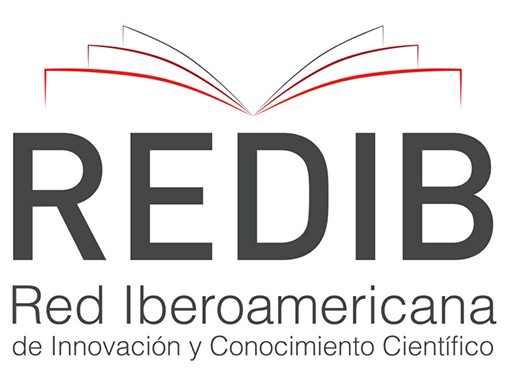EDUCAÇÃO SANITÁRIA COM FOCO NA SEGURANÇA DE ALIMENTOS: UMA ABORDAGEM PARA CRIANÇAS
DOI:
https://doi.org/10.35172/rvz.2021.v28.525Palavras-chave:
educação em saúde, ensino fundamental, higiene de alimentos, saúde públicaResumo
As doenças transmitidas por alimentos (DTAs) são definidas como enfermidades infecciosas ou tóxicas causadas pelo consumo de alimentos ou água contaminados. Na atualidade, são consideradas um dos maiores problemas mundiais de saúde pública. Dentro do contexto das DTAs, a higiene pessoal e a manipulação inadequada de alimentos no ambiente doméstico têm sido apontadas como importantes fatores de risco para a ocorrência de surtos. Baseado nestas considerações, o presente projeto de extensão universitária foi desenvolvido no intuito de instruir crianças em idade escolar sobre a importância da higiene pessoal e da manipulação adequada de alimentos, de modo que estas disseminem a informação a seus pais e familiares. O projeto foi instituido em uma escola pública do município de Botucatu-SP e atingiu 491 crianças de 5 a 11 anos. As atividades foram aplicadas em três ações prioritárias, sendo elas: 1) Palestra introdutória lúdica e interativa; 2) Gincana com brincadeiras e atividades formativas práticas e; 3) Entrega de certificados de participação e uma cartilha contendo informações e jogos com enfoque nos assuntos abordados, de modo a possibilitar a disseminação das informações para os familiares e amigos dos participantes. Os alunos demonstraram grande interesse pelo assunto, enfatizando a importância dessa abordagem nas escolas. Foi possível promover, portando, educação em saúde de forma prazerosa, de modo a evitar doenças relacionadas à precária higiene pessoal e à manipulação incorreta de alimentos.
Referências
2. BRASIL, Ministério da Saúde. Doenças transmitidas por alimentos: causas, sintomas, tratamento e prevenção. [Internet]. [citado em 24 ago. 2020] Disponível em: http://www.saude.gov.br/saude-de-a-z/doencas-transmitidas-por-alimentos
3. BRASIL, Ministério da Saúde. Vigilância Epidemiológica de Doenças Transmitidas por Alimentos. [Internet]. [citado em 24 ago. 2020]. Disponível em: http://portalarquivos2.saude.gov.br/images/pdf/2019/fevereiro/15/Apresenta----o-Surtos-DTA---Fevereiro-2019.pdf
4. TSF Rádio Notícias. As doenças transmitidas por alimentos estão subdiagnosticadas. [Internet]. [citado em 24 ago. 2020]. Disponível em: https://www.tsf.pt/sociedade/interior/as- doencas-transmitidas-por-alimentos-estao-subdiagnosticadas-5438464.html
5. Asselt, EDV, De Jong AEI, De Jonge R, Nauta, MJ. Cross-contamination in the kitchen: estimation of transfer rates for cutting boards, hands and knives. J. Appl. Microbiol. 2008; 105(5):1392-1401.
6. De Jong AEI, Verhoeff-Bakkenes L, Nauta MJ, De Jong R. Cross-contamination in the kitchen: effect of hygiene measures. J. Appl. Microbiol. 2008;105:615-662.
7. Cogan TA, Slader J, Bloomfield SF, Humphrey TJ. Achieving hygiene in the domestic kitchen: the effectiveness of commonly used cleaning procedures. J. Appl. Microbiol. 2002;92(5):885-892.
8. Fernandes SR, Park MB. Lembrar-esquecer: Trabalhando com memórias infantis. Cad. Cedes. 2006;26(68):39-59.
9. Brito AKA, Silva FIC, França NM. Programas de intervenção nas escolas brasileiras: uma contribuição da escola para a educação em saúde. Saúde Debate. 2012;36(1):624-632.
10. Joventino ES, Freitas LV, Rogério RF, Lima TM, Dias LMB, Ximenes LB. Jogo da memória como estratégia educativa para prevenção de enteroparasitoses: relato de experiência. Rev. RENE. 2009;10(2):141-148.
11. Carolina M, Moraes M, Souza DTB, Fernandes LA, Lima DC. A arte de encantar pré-escolares com histórias em saúde bucal. Rev. Ciênc. Ext. 2019;15(4):67-81.
12. Guollo AJ, Lamonega BM, Bastos FVF, Piani SS, Kitamura EA, Souza ALF.. PETiscos: relato de ação de extensão sobre educação nutricional de cães e gatos com crianças do ensino fundamental. Rev. Ciênc. Ext. 2019;15(4):82-93.
Downloads
Publicado
Como Citar
Edição
Seção
Licença

Este obra está licenciado com uma Licença Creative Commons Atribuição-NãoComercial 4.0 Internacional.











